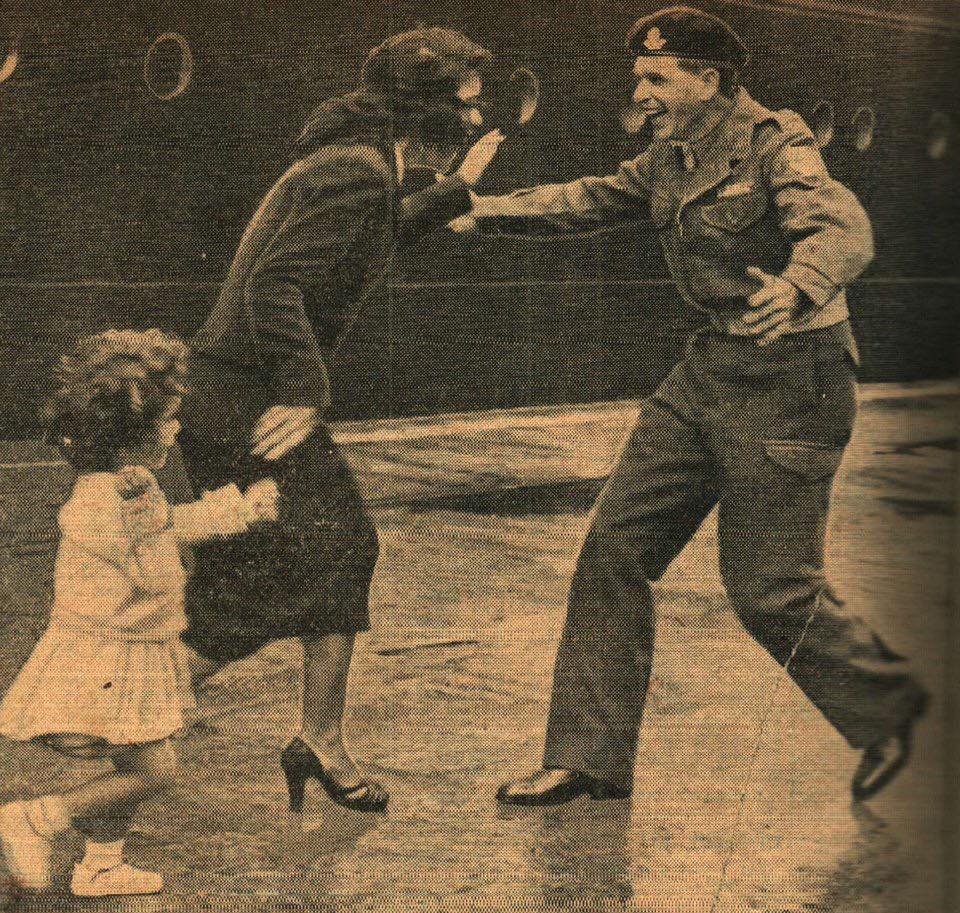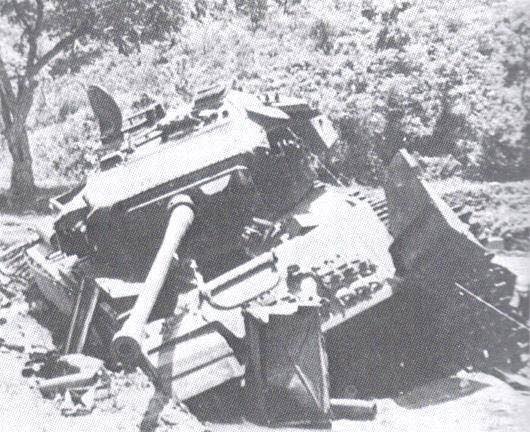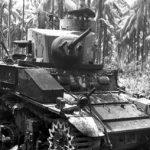THE RECOLLECTIONS OF TROOPER RICHARDSON

The long march
Each night between eight and 18 miles would be covered, the Chinese making no allowances for the sick or wounded. They trudged over endless hills and mountains, marched through dense forests, and forded freezing rivers. The towns they passed through were mostly devastated and populated by hostile and angry locals. ‘I never thought I would be grateful for the presence of a Chinese soldier,’ recalled Private Sam Mercer of the Gloucesters.
The British POWs completed marches of between eight and 12 weeks before finally arriving at the camps, wearing rags, underweight, often ill, completely exhausted. Many were suffering from dysentery, as the Chinese forced them to drink dirty water on the march taken from ditches and paddies rather than wells. They were all crawling with lice.
Arriving at their destinations, the British discovered emaciated Americans dying by the score. ‘The American soldiers seemed to have no resistance to hardship,’ recalled another Gloster, Private Frank Carter. The Chinese permitted the British to help them. ‘You had to kick them, get them on the move,’ said Carter. Discipline among the Americans was gone. ‘The strongest ones got food, the weakest were left to die.’
The camps
The camps bore little relation to the classic image of a POW camp. Lacking perimeter fences, guard towers, and searchlights, they were a collection of filthy wooden peasant huts. Escape, however, though easy, was not a realistic possibility. A white man on the run inside North Korea would not last long. ‘We will keep you here ten, 20, 30, even 40 years if necessary until you learn the truth, and if you don’t learn it, we will bury you so deep you won’t even stink!’ declared one Chinese officer to a group of stunned British prisoners.
The Chinese called the prisoners ‘war criminals’ because they had fought against Communism. But they created a ‘Lenient Policy’ that stated that the POWs were dupes of their own ‘reactionary’ and ‘imperialist’ governments and that if they reached a state of remorse and repentance, they would be forgiven for their ‘crimes’.
British officers were held at Camp 2 (Branch 1) at Pyongyang-ni and at Camp 2 (Branch 3) at Chang-ni on the banks of the Yalu River. They were deliberately segregated from their men. In true ‘proletarian’ style, the Chinese directed their propaganda at the British other ranks, particularly the youngest soldiers.
‘People died from disease, wounds, malnutrition, and “give-up-itis”,’ recalled Lieutenant Guy Temple of the Glosters. About 600 other ranks were held at Camp 1 at Chongsong; Camp 2 (Branch 2) at Ogye-dong, a penal camp located about ten miles from the officer’s camps at Branch 1; Camp 3 (Branch 1) at Changju beside the Yalu; Camp 3 (Branch 2) at Songp’yong-ni; and Camp 5 at Pyoktong, which was later the location of the infamous Camp Olympics.
Camp 5 contained American POWs as well as about 180 British privates, lance-corporals, and corporals. The Chinese also removed the paternalist influence of British sergeants and warrant officers over their men. They were segregated at the Sergeants Camp, Camp 4, located at Kuup-tong.
Camp life
‘Every morning at 06:00 we had to parade on the square and be harangued by a pseudo-Chinese-American on the wonders of communism,’ recalled Bugler Anthony Eagles of the Glosters. Using a ‘carrot and stick’ approach, the Chinese offered ‘incentives’ to those who were amenable to their ideas, such as more food, cigarettes, and medical treatment.
‘The Chinese thought we were uneducated, illiterate, and stupid,’ recalled Sam Mercer. Their captors knew that the prisoners yearned to go home, but the war had to end first. ‘Peace’ soon became the major Chinese theme. Beginning with peace lectures, peace petitions were soon being offered to the prisoners to sign. Later there were ‘spontaneous’ peace committees formed by the POWs and informal discussion groups.
To make it appear that the peace campaign originated with the POWs, the Chinese used ‘progressive’ prisoners who collaborated with them. The committees were conduits through which propaganda was fed to the prisoners. The 1952 Olympics at Camp 5 was the zenith of this campaign. However, any resistance from the POWs to Communist indoctrination was met by physical punishment and torture – in clear violation of the Geneva Convention.
Torture
The Chinese made efforts to extract information from British POWs. Officers, in particular, were asked to draw maps, even of unlikely locations such as the London Docks. ‘The snag was, they’d ‘lose’ the map and say “Could you do it again?”,’ recalled Lieutenant Temple. ‘If it was not the same, you were in trouble.’
Some resistant British soldiers were taken down to the Yalu River barefoot in mid-winter and had water poured over their feet until it froze. Some were forced to kneel for hours on sharp rocks. There were even mock executions for those who failed to provide written confessions of their ‘crimes’. Others were tied up for hours on end, whipped, or confined in tiny dark cells.
‘You had to prove your innocence,’ said Private Derek Kinne, Royal Northumberland Fusiliers, who was awarded the George Cross for his defiant acts of resistance in the camps. ‘It was a bit like dealing with the taxman!’
The Chinese authorities continue to view this period of history quite differently from the British. ‘For their own interest, they [the POWs] started to become more proactive with respect to anti-war and seeking peace, and they gradually discovered their special value in this regard,’ recalled former People’s Volunteers Commissar Zhu Ji Guang, who, though now extremely elderly, still spouts the party line.
Preparations for Pyoktong 1952
Zhu Ji Guang worked closely with army interpreter Wang Wei Yuan. Both men speak freely today about the planning of the 1952 Camp Olympics. Zhu states that an American prisoner named Preston E Richie was the initiator of the ‘peace’ campaign dating from October 1951. ‘Richie proposed to set up a POW Peace Organisation,’ said Zhu, ‘and to talk to the U.S. government, and the whole world, and let the world know that the UN POWs wanted peace and to go home.’
According to Zhu ‘[The peace] proposal received a strong response from other POWs.’ Chinese history books state that American POWs surged into the streets of Bitong town shouting, ‘The US must stop the Korean War’, ‘Withdraw troops from Korea’, and ‘Don’t interfere on the Taiwan issue’.
A Chinese officer named Wang Nei Qing organised the Camp Olympics. The overall commandant of the prison camps and the ‘President of the Olympics’ was General Wang Yang Gong, sent down from Beijing by Chairman Mao to oversee the spectacle.
Private David Green of the Glosters was on the Camp 5 boxing and gymnastic teams at the Olympics. He ultimately lost his bout but recalled that the build-up, training, and organisation for the Olympics raised the prisoners’ morale considerably. The excitement of the actual games, held over two weeks, proved to be a very popular diversion for the POWs from their humdrum existence in the camps. But once the Olympics ended, Green, like many other young POWs, felt depressed as the reality of their situation hit home.
The Games
The range of Olympic events was impressive. Prisoners did not compete in national teams, but rather in camp teams, though many were based along national lines. Certain sports were dominated by particular nations – for example, the soccer teams were almost entirely British.
The Chinese hosts made a great show of handing out awards to individuals and particular camp teams that had excelled during the Olympics. The Games were carefully photographed, and the reporters, both Western and Chinese, were busy writing articles, taking photographs, and conducting interviews.
Although the Americans fielded the most ‘athletes’, British POWs made a strong showing in both individual and team sports. Olympic Champion was Camp 5, and in first place for Individual High Scores was African-American POW Delmar G Miller, with Briton Anthony Eagles coming third. Eagles were first in the 400m Dash and in the Long Jump, with fellow Briton Private George Green taking first place in the 1,500m Walk.
To some Korean War veterans, the Camp Olympics remains a troubling episode, particularly for those who did not take part. The whiff of collaboration still hangs over the event. The Camp Olympics was clearly a vastly elaborate Communist propaganda exercise, and the POWs knew this.
Private Bob Parker of the Royal Australian Regiment claimed that by the time the Olympics were held, they all knew that the war would soon be over. He claimed that there was a uniform willingness to participate without dishonour. Parker added that by late 1952 the prisoners were being better treated and fed by the Chinese. He also claims that those who took part were compelled to do so, but that their involvement was ‘nothing to us’.
The real winners were, of course, North Korea and China. It was the most blatant expression of the Chinese ‘peace’ campaign, and the Chinese cleverly played on the Anglo-American preoccupation with sport and fair play and upon the POWs’ strong desire to visit comrades in other camps.
Brainwashing?
The question remains as to whether any of the British POWs succumbed to Communist propaganda. It was of serious concern to the British Government, and an MI5 investigation in 1953 discovered that British officers and senior NCOs (who made up about 12% of UK POWs) remained completely unaffected by Communist propaganda. Of the junior NCOs and privates, some two-thirds remained ‘virtually unaffected’. Of the rest, some absorbed sufficient indoctrination to be classed as Communist sympathisers by MI5 on their return home after the war.
According to recently declassified documents, MI5 stated that around 40 Britons came home from Korea as convinced Communists. Twenty-one Americans and one Briton even refused repatriation at the end of the war and remained in North Korea or China, but these were minuscule numbers when laid against the numbers who had been captured.
‘All it was, was a chance for the POWs to see someone from another camp,’ stated former prisoner William Allen. ‘That was all it was, but we were always thinking of the 50% of the POWs that were not at the Olympics. Because they died during the first two winters.’
2022 is the 70th anniversary of the Camp Games, the Korean War is largely forgotten in the UK today, as is the suffering of British POWs in Communist hands.



